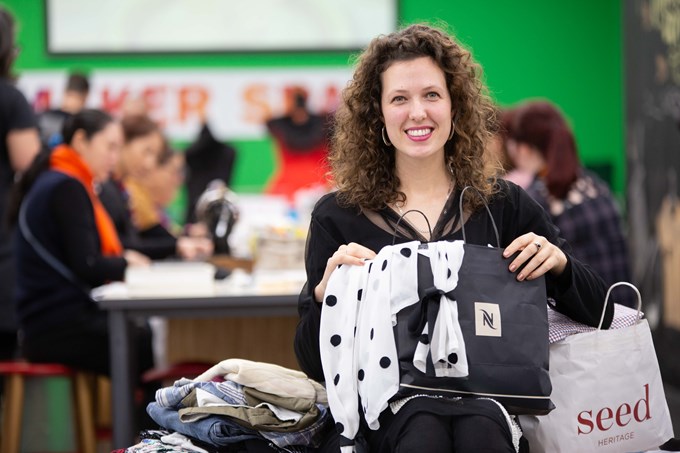Keeping in line with New Zealand Fashion Week’s sustainability focus, Auckland’s Central City Library is gearing up for its third installation of Swap it Like it’s Hot.
To be held on Saturday August 31 from 11am to 3pm at the Lorne Street library, the event encourages people to swap pre-loved clothing items for tokens. Tokens can then be used to buy other garments.
Librarian Marela Glavaš says it’s a great way to get a new wardrobe – without the cost – while helping the environment.
“It’s a fun, sustainable and inclusive event for all sizes, body shapes and genders,” she says.
Marela says up to 10 items of clothes can be dropped into the library on Tuesday, August 27 or on the day of the swap.
No shoes or accessories will be accepted, only “gently used” clothing (no stains, no rips, no intimates).
“It’s a win, win. You’re not only treating yourself to new-to-you-garments but saving Papatūānuku (Mother Earth) at the same time.”
Leftover clothing will be donated to Mercy Hospice, who provide specialist palliative care to the people of Auckland.
During New Zealand Fashion Week (26 August to 1 September), there will be free workshops and events taking place daily in the library.
These include daily sewing workshops, 3D-printable jewellery pieces, a speed dating evening with industry professionals, a vintage fashion talk, a mini designer exhibition and printmaking and sewing workshops for kids and families.
For a list of events visit central.aucklandlibraries.nz
For tickets and to find out more about what’s on offer across New Zealand Fashion Week and Fashion Weekend visit nzfashionweek.com
Fashion Facts
- 80 billion new garments created annually
- Fashion is one of the most polluting industries
- 11,000-20,000L of water are needed to produce enough cotton to make one pair of jeans
- The way consumers care for their clothes accounts for 40% of the environmental impact of each item
- The global slavery index found 40.3 million people in modern slavery in 2016, of which 71% are female


